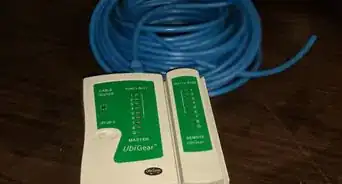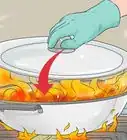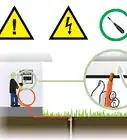This article was co-authored by wikiHow Staff. Our trained team of editors and researchers validate articles for accuracy and comprehensiveness. wikiHow's Content Management Team carefully monitors the work from our editorial staff to ensure that each article is backed by trusted research and meets our high quality standards.
wikiHow marks an article as reader-approved once it receives enough positive feedback. In this case, 90% of readers who voted found the article helpful, earning it our reader-approved status.
This article has been viewed 79,718 times.
Learn more...
Electrical fires are one of the top causes of house fires and can lead to serious damage to your home or office. Electrical fires can also harm your loved ones and put others at risk of injury. You can prevent electrical fires by making sure your electrical plugs, outlets, and cords are safe to use. You should also use electrical appliances properly and maintain the electrical wiring in your home or office.
Steps
Maintaining Electrical Plugs, Outlets, and Cords
-
1Make sure all electrical outlets are fitted and tight to the wall. Start by checking all the electrical outlets in your home or on your job site. Make sure they are tight and fitted to the wall, as loose-fitted plugs can be a shock or fire hazard. If you notice any of the wall plates are broken or missing, put new wall plate over the outlets so there are no exposed electrical wiring.[1]
- You should also cover any unused outlets with protective covers, especially if you have young children who will be moving around in the space. This will prevent electrocution and other electrical injuries.
-
2Do not tamper with electrical plugs. You should never remove the third prong on a plug to try to make it fit into a two-conductor outlet. You should also never bend or twist the prongs on the plug, as this can lead to an electrical hazard.[2]
- Make sure you never force plugs into an outlet. Instead, hold the covered top section of the plug firmly to slide it into and out of the electrical plug. Pulling on the cord itself can wear it out and increase the risk of an electrical fire.[3]
Advertisement -
3Use a surge protector for multiple plugs. Overloading an outlet with too many plugs can cause an electrical fire. Instead, buy several surge protectors, or power bars and place them in the electrical outlets in your home. You should then plug no more than one to three cords at a time into the power bar.[4]
- Make sure you get power bars with internal overload protection. The internal overload protection will cause the power bar to shut down if it gets overloaded, preventing an electrical fire from occurring.[5]
-
4Replace any frayed or cracked electrical cords. You should also check the electrical cords in your home to ensure they are not frayed or cracked. If they are, replace them with new electrical cords. You may need to contact the manufacturer of an appliance for a replacement cord.[6] [7]
- You should also make sure the electrical plug is securely attached to the electrical cord. You do not want any exposed wiring or components on the plug or the cord.
-
5Use extension cords as a temporary solution. Though it may be tempting to use extension cords to extend the cords on your appliances or electronics, they should only be a temporary solution. You should not use extension cords as permanent electrical wiring for your home or office. They can be a major electrical hazard.[8]
- If you do use extension cords, make sure they have safety closures on them. This will protect young children from getting shocked by the cords.
-
6Keep electrical cords away from carpets and water. Try not to place electrical cords under carpets, rugs, and furniture where they are hidden. They could end up causing a fire if they become frayed and come into contact with carpet or furniture. You should also place electrical cords in low traffic areas so they are not stepped on often or tampered with in any way.[9]
- You should also keep water away from any electrical cords, as water can cause the cords to spark and could lead to an electrical fire. Do not use a hair dryer, for example, by a sink or bathtub.
- Do not nail or staple electrical cords to walls, floors, or other objects, as this can interfere with the electrical current and lead to an electrical hazard.
Using Electrical Appliances and Equipment Safely
-
1Follow the manufacturer's instructions. Make sure you follow the manufacturer's instructions when using any electrical appliances or equipment. Do not use the products in ways that are not recommended by the manufacturer.[10]
- You should also never use defective appliances in your home or office. Get them inspected by the manufacturer or by a qualified electrician.
-
2Disconnect small appliances when not in use. You should try to get into the habit of disconnecting small appliances like electric kettles, toasters, and hair dryers, once you are done using them. This way, you save electricity and you lower the risk of an electrical fire due to these appliances.[11]
- You should also make sure you unplug all appliances before you clean them. You do not want water to come into contact with the appliances while they are plugged in.
-
3Make sure you use the right light bulbs in fixtures. You should only use light bulbs that match the wattage of the fixture. Do not use light bulbs that have a higher wattage than recommended on the light fixture. This is an electrical hazard.[12]
- Check that the light bulbs are screwed in properly. Improperly secured light bulbs can lead to overheating, which can then lead to an electrical fire.
-
4Make sure there are Ground Fault Circuit Interrupters in your outlets. Ground Fault Circuit Interrupters (GFCIs), can help to prevent electrical fires by shutting down automatically if a circuit is overloaded or at risk. Your home or office may already have GFCIs installed in the electrical outlets. There will be a small black "test" button and a small red "reset" button on the outlets. You can then use these buttons to reset your electrical current if there is a power overload[13]
- The most common type of GFCI is the "receptacle-type" GFCI, which can be installed in your electrical wall outlets by a qualified electrician.[14] You should have GFCIs installed throughout your home, such as in your kitchen, your bathrooms, your laundry room, your workshop, your basement, and your garage.
- There are also temporary, portable GFCIs available for construction sites and outdoor areas where you are using electric tools or yard equipment like lawn mowers or trimmers.
- GFCIs in your home or office should be tested on a monthly basis to ensure they are functioning properly. They should be tested by a qualified electrician.
Maintaining the Electrical Wiring in Your Space
-
1Pay attention to warning signs of faulty wiring. Older homes and apartments are at a higher risk of faulty wiring. You should be on the look out for any warning signs of faulty wiring in your space and make sure the wiring is inspected by a qualified electrician as soon as possible. There are several warning signs, including:[15]
- Flickering light bulbs and lights that dim when you use certain appliances.
- Light switches that are hot to the touch.
- Plugs that spark when you try to plug them in.
- Outlets that sound like they are buzzing, crackling, or hissing.
- Circuit breakers and fuses that trip or short constantly.
- Electrical wires and fuse boxes that feel hot to the touch.
-
2Get the electrical wiring checked by a qualified electrician. You should have the electrical wiring in your home or office inspected before you move into the space and on a consistent basis. Make sure you hire a qualified electrician to do the inspection of the entire space.[16]
- The electrician should check that the circuit breakers and fuses are properly rated for the circuit they are protecting. The circuit breakers should also work properly.
- The electrician should also check for any loose wires or loose lighting fixtures. They should replace any broken or faulty wiring in the space.
- The electrician may also advise that you increase your space's electrical service capacity, especially if you tend to have fuses that blow or trip often. You may need to upgrade the electrical service capacity to keep up with a high number of lighting, appliances, and electronics in your space.
-
3Update the electrical wiring every ten years. You should make sure the electrical wiring in your space is updated at least every ten years to prevent any electrical fire hazards. You may need to have a qualified electrical do small upgrades in your space and recommend additional protection, like GFCIs in other areas of your home.[17]
- You should also make sure any smoke alarms in your home are replaced every ten years. Check the date of manufacture on the smoke alarm to confirm it is within ten years old. If not, replace it with a new smoke alarm.
Community Q&A
-
QuestionI can't see any fault, but I can smell burnt wires in the board. What should I do?
 Community AnswerYou really need to contact an electrician and have them come to your home. It sounds like you're at risk for an electrical fire. It's best to contact a professional.
Community AnswerYou really need to contact an electrician and have them come to your home. It sounds like you're at risk for an electrical fire. It's best to contact a professional. -
QuestionCan a frayed wire cause a fire if it is unplugged?
 Community AnswerIt would take extreme conditions. As long as there isn't energy flowing through the wire it should not cause a fire.
Community AnswerIt would take extreme conditions. As long as there isn't energy flowing through the wire it should not cause a fire. -
QuestionWhy didn't my breaker flip when the outlet flashed and smoked?
 Community AnswerYou have a faulty wire and all of the current is running through 1 wire instead of the pair, causing the wire to burn (and could even cause it to melt, depending on what type of wire it is). I imagine the reason the breaker didn't flip was because this wire had not yet melted, but instead had started to burn the insulator, explaining the smoke. The outlet flashing was most likely caused by a rush of current running through such a thin wire and jumping at the outlet, as there was a such a big current.
Community AnswerYou have a faulty wire and all of the current is running through 1 wire instead of the pair, causing the wire to burn (and could even cause it to melt, depending on what type of wire it is). I imagine the reason the breaker didn't flip was because this wire had not yet melted, but instead had started to burn the insulator, explaining the smoke. The outlet flashing was most likely caused by a rush of current running through such a thin wire and jumping at the outlet, as there was a such a big current.
References
- ↑ http://www.safeelectricity.org/information-center/library-of-articles/55-home-safety/294-avoid-electrical-fires-at-home
- ↑ http://www.safeelectricity.org/information-center/library-of-articles/55-home-safety/294-avoid-electrical-fires-at-home
- ↑ http://vancouver.ca/home-property-development/preventing-electrical-fires.aspx
- ↑ http://www.safeelectricity.org/information-center/library-of-articles/55-home-safety/294-avoid-electrical-fires-at-home
- ↑ https://www.angieslist.com/articles/5-ways-prevent-electrical-fires.htm
- ↑ http://www.safeelectricity.org/information-center/library-of-articles/55-home-safety/294-avoid-electrical-fires-at-home
- ↑ https://www.angieslist.com/articles/5-ways-prevent-electrical-fires.htm
- ↑ http://vancouver.ca/home-property-development/preventing-electrical-fires.aspx
- ↑ http://vancouver.ca/home-property-development/preventing-electrical-fires.aspx
- ↑ http://vancouver.ca/home-property-development/preventing-electrical-fires.aspx
- ↑ http://vancouver.ca/home-property-development/preventing-electrical-fires.aspx
- ↑ http://www.esfi.org/resource/home-electrical-fires-184
- ↑ http://www.safeelectricity.org/information-center/library-of-articles/55-home-safety/294-avoid-electrical-fires-at-home
- ↑ http://www.safeelectricity.org/information-center/library-of-articles/55-home-safety/317-ground-fault-circuit-interrupters-gfcis
- ↑ https://www.angieslist.com/articles/5-ways-prevent-electrical-fires.htm
- ↑ http://www.safeelectricity.org/information-center/library-of-articles/55-home-safety/294-avoid-electrical-fires-at-home
- ↑ https://blog.mass.gov/blog/safety/may-is-national-electrical-safety-month-learn-how-to-prevent-electrical-fires-in-your-home/
About This Article
To prevent electrical fires, make sure all of the electrical outlets in your home are fitted and tight to the wall. Also, use surge protectors that have overload protection for outlets with a lot of plugs, and only plug up to 3 cords at a time into a surge protector. Since extension cords can pose a major electrical hazard, avoid using them as a long-term solution. You should also keep electrical cords away from carpets, water, and areas with heavy foot traffic so they're less likely to cause a fire. To learn how to use electrical appliances safely to prevent a fire, scroll down!
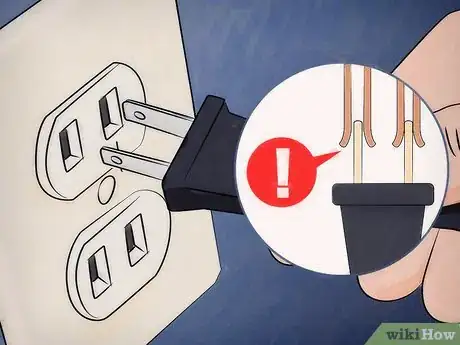
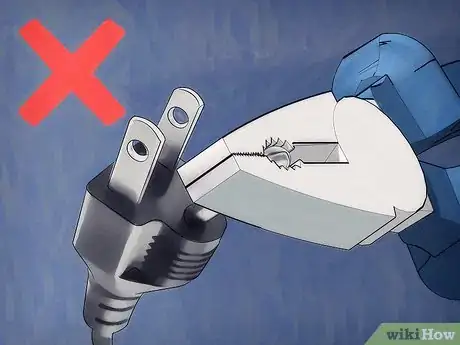
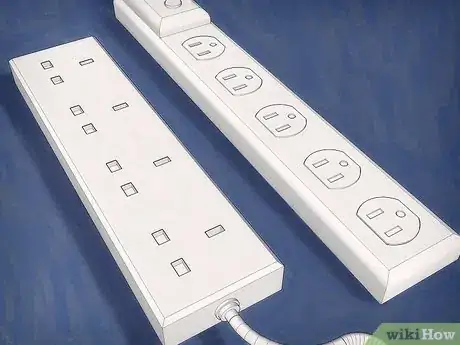

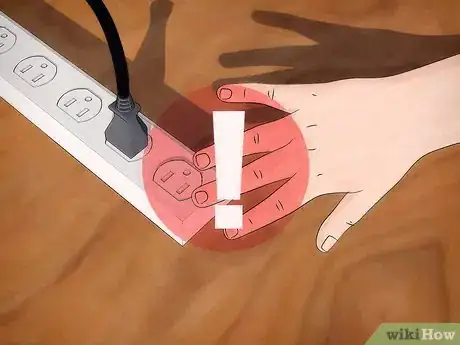
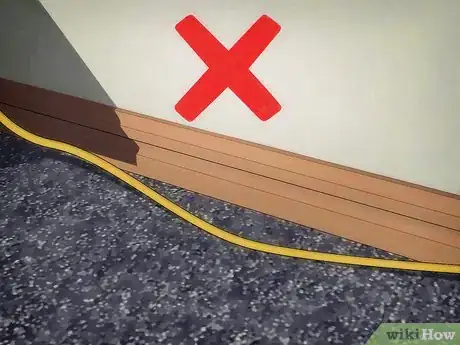
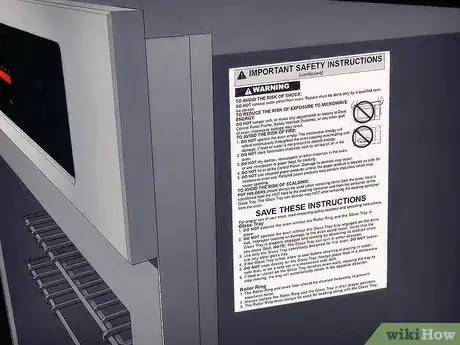
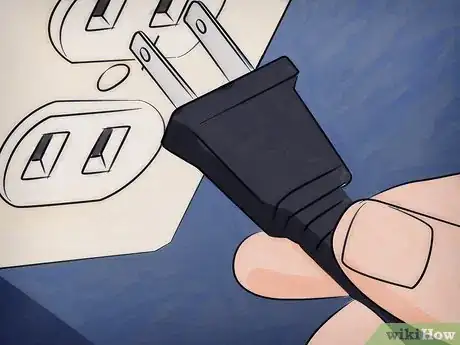
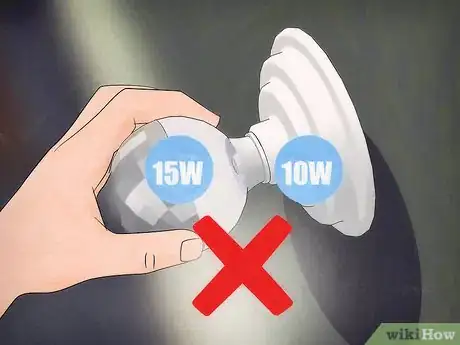
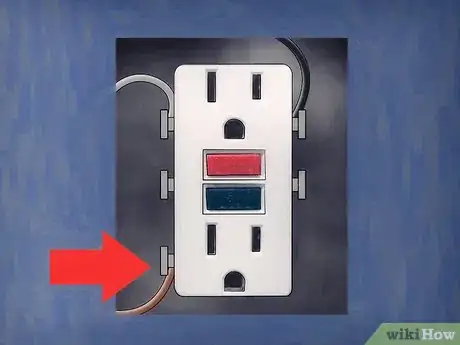
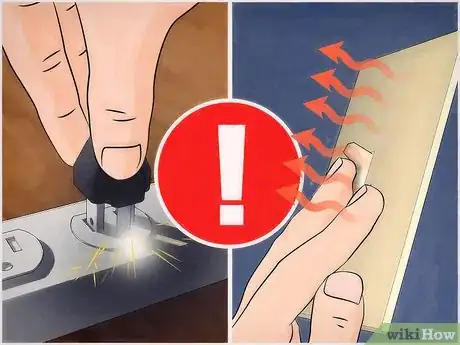
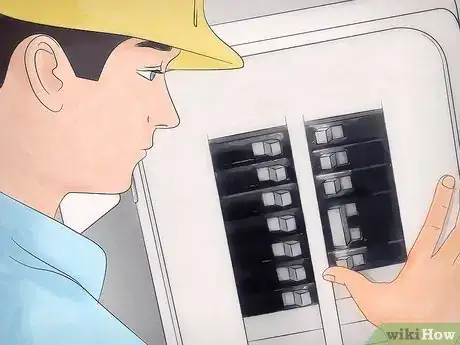

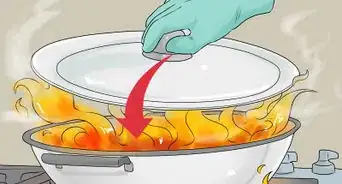

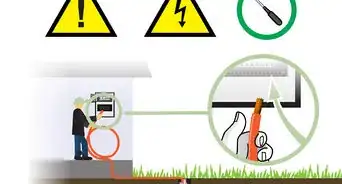


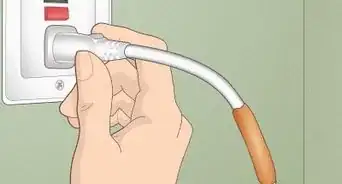
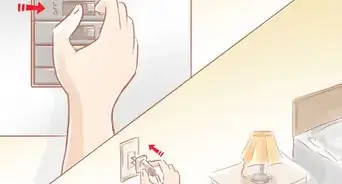
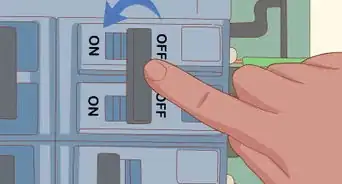
-Electric-Shock-Step-8.webp)
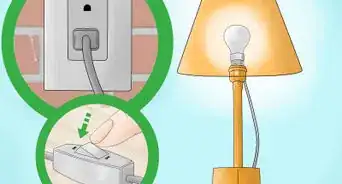
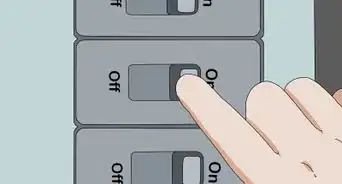
-Step-6-Version-2.webp)

